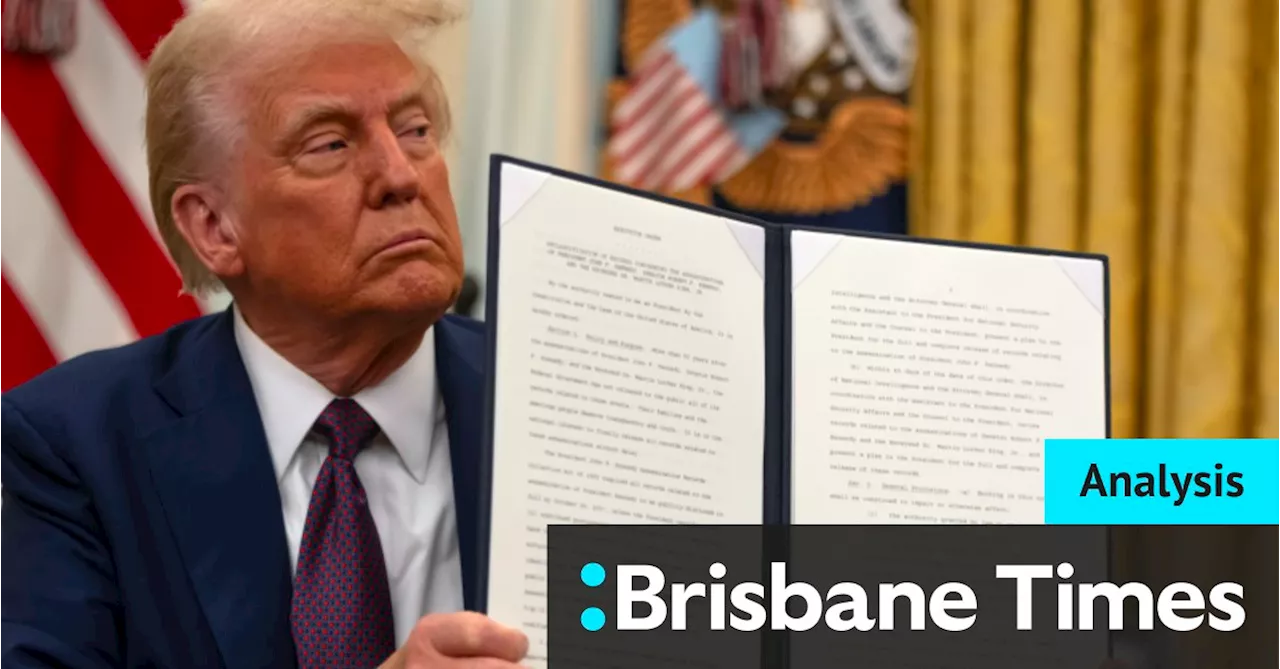President Donald Trump's second inauguration marked a return to power characterized by shocking actions that defied norms and tested the limits of American democracy. From pardoning violent rioters to purging inspectors general, Trump demonstrated a willingness to push boundaries and challenge the established order. This article examines the most shocking aspects of Trump's first week back in office, analyzing his disregard for legal precedent, his attacks on democratic institutions, and his radical policy shifts.
On his first full day back in the White House, President Donald Trump reveled in his return to power and vowed to do what no president had ever done before. He declared, 'We’re going to do things that people will be shocked at.' Of all the thousands of words that Trump uttered during his fact-challenged, talkathon-style opening days as the nation’s 47th president, those may have been the truest. No matter that much of what he was doing he had promised on the campaign trail.
He succeeded in shocking nonetheless. Not so much by the ferocity of the policy shifts or ideological swings that invariably come with a party change in the White House, but through norm-shattering, democracy-testing assertions of personal power that defy the courts, Congress and the ethical lines that constrained past presidents. He freed even the most violent of the rioters who assaulted the Capitol in his name four years ago. Out of pique over questions of loyalty, he stripped former advisers facing credible death threats of their security details. Disregarding a law passed with bipartisan support and upheld by the Supreme Court, he allowed the Chinese-owned TikTok app to remain in use in the United States despite serious national security concerns. Not satisfied to simply eliminate diversity, equity and inclusion initiatives, he ordered government workers to snitch on anyone suspected of not going along or face “adverse consequences,” a practice familiar to anyone of a certain age who lived in Russia. He fired at least a dozen inspectors general who monitor departments for corruption and abuse in a late-night purge Friday, ignoring a law requiring him to give Congress 30 days’ notice and provide specific reasons. In doing so, Trump in effect declared that he was willing and even eager to push the boundaries of his authority, the resilience of American institutions, the strength of the nearly 2½-century-old system and the tolerance of some of his own allies. Even more than in his first term, he has mounted a fundamental challenge to expectations of what a president can and should do, demonstrating a belief that the rules his predecessors largely followed are meant to be bent, bypassed or broken. “He’s using the tools of government to challenge the limits on the post-Watergate presidency,” said Brendan Nyhan, a government professor at Dartmouth College. “Some of these efforts will be turned back by the courts, but the level of anticipatory obedience we’re seeing from business, universities and the media is unlike anything I’ve seen in my lifetime.” Not everything that shocked people in Trump’s first week necessarily violated presidential standards. Anytime a president from one party takes over from one of the other, the shifts in policies can be head-snapping, and Trump has been particularly aggressive in reversing the country’s direction ideologically and politically.It is broadly within a president’s power, for instance, to order mass deportations, to pull out of an international climate agreement or to fire holdover political appointees, however debatable the decisions might be. But as so often happens with Trump, he takes even those decisions one step further. “The theme of this week was vengeance and retribution when all other presidents have used their inaugurations to heal wounds, bring people together and focus on the future,” said Lindsay Chervinsky, executive director of the George Washington Presidential Library and author of several books on the presidency. “That sounds like a norm, but it’s actually fundamental to the survival of the republic.” Trump’s flurry of pardons last week sent a message to law enforcement: He will “back the blue” if they back him. Trump has never been too impressed with the argument that he should or should not do something because that is the way it has been done. As a government novice in his first term, he found himself flummoxed at times by how Washington worked and unable to exert his will to achieve major priorities. He returns for this second term more prepared and more determined to crash through obstacles and any supposed “deep state” in his way. Ideas that establishment advisers talked him out of the last time, he is pursuing this time with a new cast of more like-minded aides who share his willingness to disrupt the system. He decided to rewrite the 14th Amendment to the Constitution as it has been understood for over a century to declare it does not guarantee automatic citizenship to all children born in the United States. It took just three days for a federal judge to temporarily block the move, which he called “a blatantly unconstitutional order”, but the issue will surely go to the Supreme Court
Donald Trump Presidency American Democracy Norm-Shattering Power Grab 14Th Amendment Tiktok Inspectors General Pardons
Australia Latest News, Australia Headlines
Similar News:You can also read news stories similar to this one that we have collected from other news sources.
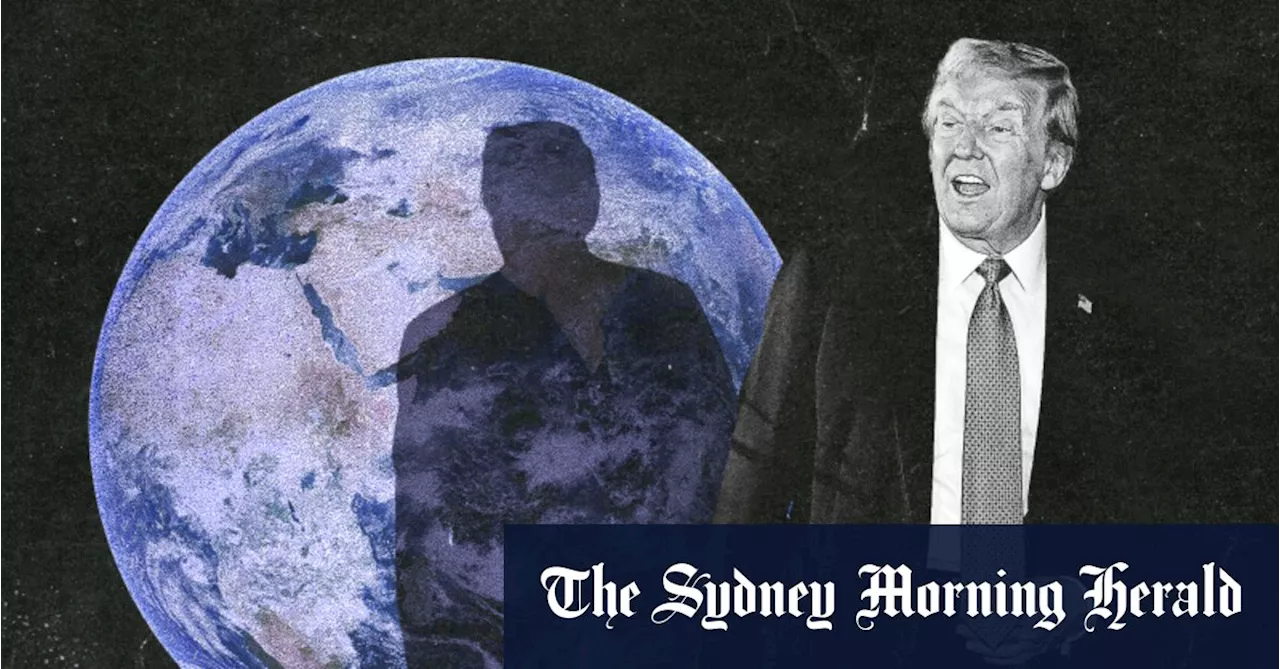 Trump's Return to Power: A Looming Shadow over Europe in 2025As Donald Trump prepares to return to the Oval Office, the world, especially Europe, braces for the impact of his policies and influence. The text explores how Trump's agenda could shape European politics, ranging from NATO's future to the security landscape and economic ties.
Trump's Return to Power: A Looming Shadow over Europe in 2025As Donald Trump prepares to return to the Oval Office, the world, especially Europe, braces for the impact of his policies and influence. The text explores how Trump's agenda could shape European politics, ranging from NATO's future to the security landscape and economic ties.
Read more »
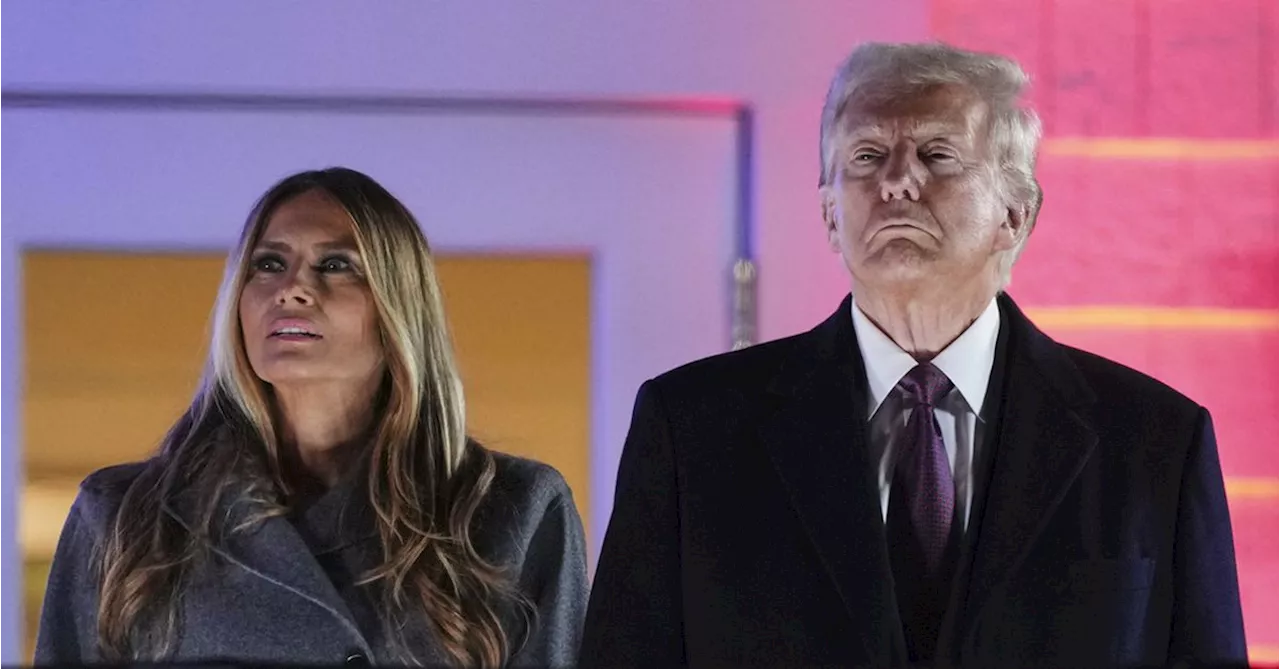 Trump arrives in Washington for inaugural celebrations to mark his return to powerTrump will officially become president on January 20.
Trump arrives in Washington for inaugural celebrations to mark his return to powerTrump will officially become president on January 20.
Read more »
 Trump's Return to Power: A Celebration of Spectacle and Divisive PoliticsThis article paints a satirical picture of Donald Trump's 60th presidential inauguration, highlighting the self-serving spectacle and disregard for pressing issues like climate change and the aftermath of the January 6 insurrection. It emphasizes Trump's political maneuvering, including pardoning January 6 insurrectionists and exploiting public grief over the Gaza hostages.
Trump's Return to Power: A Celebration of Spectacle and Divisive PoliticsThis article paints a satirical picture of Donald Trump's 60th presidential inauguration, highlighting the self-serving spectacle and disregard for pressing issues like climate change and the aftermath of the January 6 insurrection. It emphasizes Trump's political maneuvering, including pardoning January 6 insurrectionists and exploiting public grief over the Gaza hostages.
Read more »
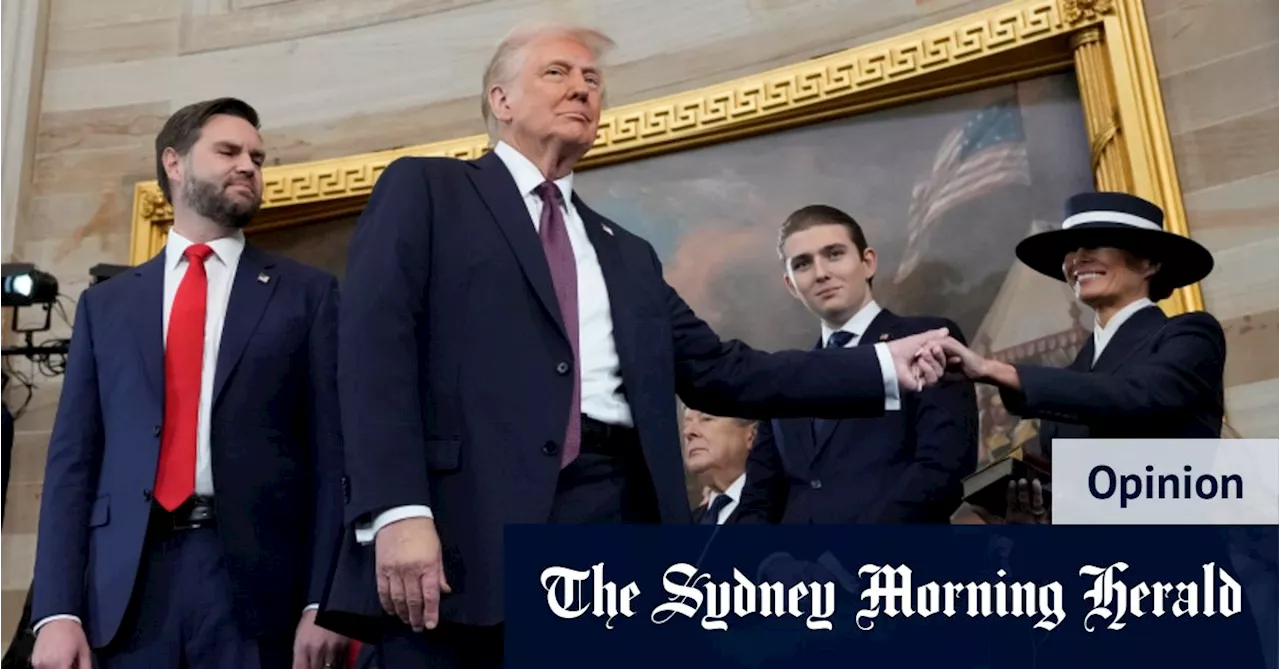 Trump's Second Inauguration: A Return to Power and Echoes of Divisive RhetoricTrump's second inauguration, held in the US Capitol Rotunda due to arctic temperatures, served as a stark reminder of the January 6th insurrection. Despite a narrow victory, Trump's return to power reflects the will of the American people, though his divisive rhetoric and attacks on diversity, equity, and inclusion continue to fuel national polarization.
Trump's Second Inauguration: A Return to Power and Echoes of Divisive RhetoricTrump's second inauguration, held in the US Capitol Rotunda due to arctic temperatures, served as a stark reminder of the January 6th insurrection. Despite a narrow victory, Trump's return to power reflects the will of the American people, though his divisive rhetoric and attacks on diversity, equity, and inclusion continue to fuel national polarization.
Read more »
 Kyrgios Makes Shocking Davis Cup Return After Five YearsNick Kyrgios is set to rejoin Australia's Davis Cup team for the first time since 2019.
Kyrgios Makes Shocking Davis Cup Return After Five YearsNick Kyrgios is set to rejoin Australia's Davis Cup team for the first time since 2019.
Read more »
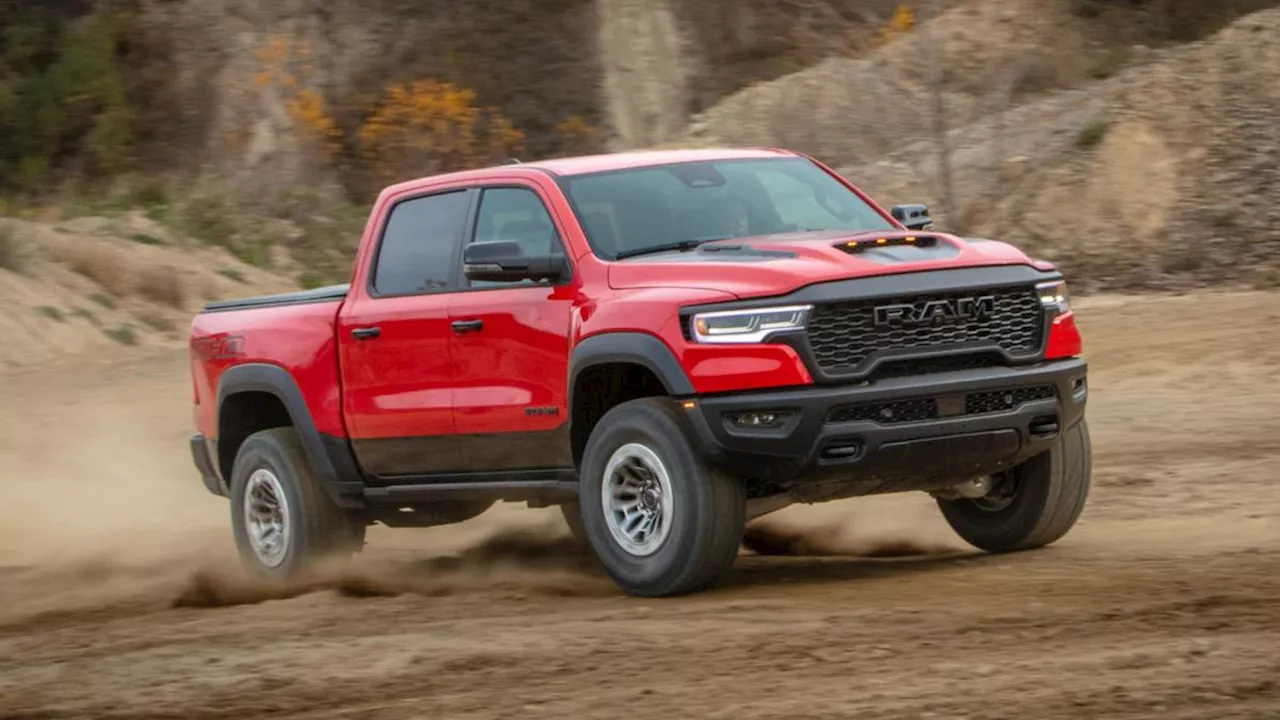 Could the Ram 1500 Return to V8 Power?Ram CEO Tim Kuniskis hints at the possibility of bringing back the Hemi V8 engine to the 1500, despite the challenges posed by the truck's new electrical architecture and discontinued production.
Could the Ram 1500 Return to V8 Power?Ram CEO Tim Kuniskis hints at the possibility of bringing back the Hemi V8 engine to the 1500, despite the challenges posed by the truck's new electrical architecture and discontinued production.
Read more »
